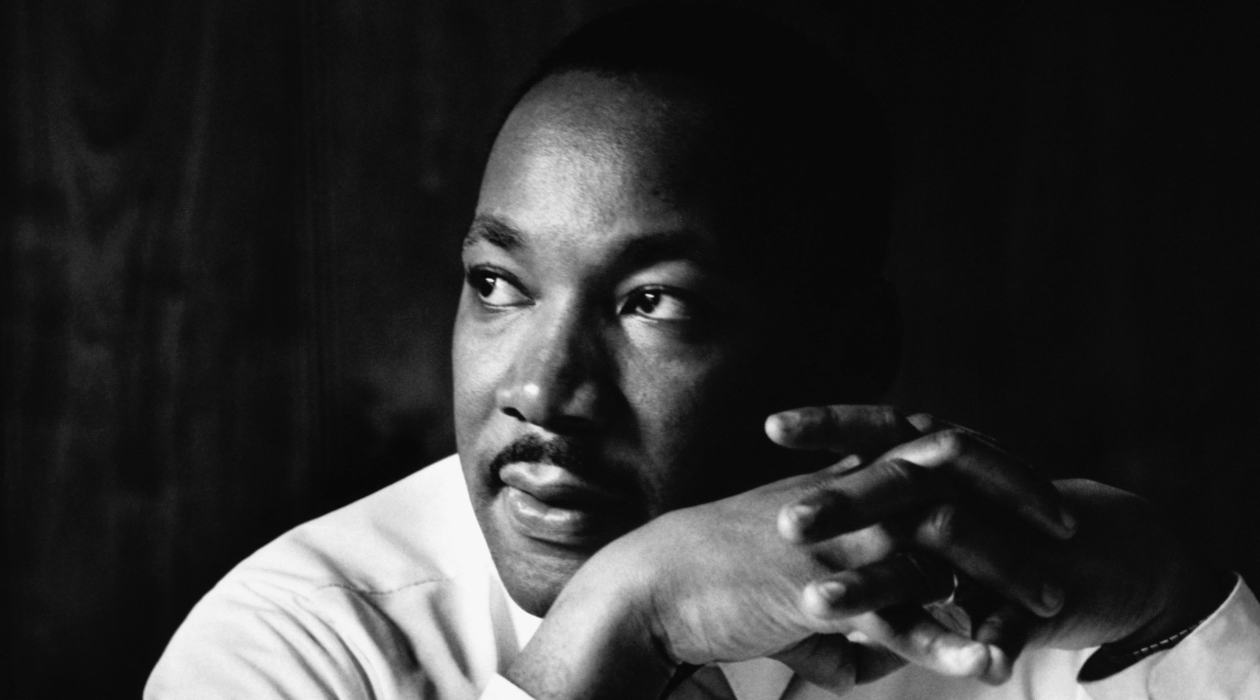Quote:
"True power isn't about titles, control, or external authority. It resides within each of us, waiting to be harnessed."
Paul R.K Mashauri
The Extraordinary Power of Ordinary Leaders
In the annals of history, there are figures who shine so brightly that they become beacons of inspiration for generations to come. Martin Luther King Jr., Nelson Mandela, and Mahatma Gandhi are among these luminaries, revered for their unwavering commitment to justice and equality. They didn't wield the traditional levers of power, yet they harnessed a force so potent that it reshaped the world. What was the source of their remarkable power, and what can we learn from their legacy?
The Anatomy of Power: Exploring the Six Bases of Power
Imagine a world where power isn't merely about control but also about inspiring change, a world where leadership is synonymous with wisdom. Half a century ago, social psychologists John French and Bertram Raven dissected the concept of leadership, unraveling six distinct bases of power:
- Legitimate Power: Derived from the belief that a person possesses the formal authority to make demands and expect compliance and obedience. It's the power vested in titles and positions.
- Reward Power: Arises from one's ability to offer incentives or compensation in exchange for compliance. It's the power to motivate through positive reinforcement.
- Referent Power: Emerges from a person's perceived attractiveness, worthiness, and the respect they command. It's the power of being a role model and earning the trust of others.
- Coercive Power: Stems from the belief that a person can punish others for noncompliance. It's the power to enforce obedience through fear or penalties.
- Informational Power: Springs from a person's control over vital information needed to achieve a goal. It's the power of access to knowledge.
- Expert Power: Rooted in a person's high levels of knowledge and skills. It's the power of expertise.
While each of these forms of power plays a role in leadership, what truly sets extraordinary leaders apart is wisdom—a form of power that transcends titles and positions. Wisdom encompasses the ability to think and act using knowledge, experience, understanding, common sense, and insight. It aligns closely with the sixth form of power: expertise.
The Power of Wisdom: Expert Leadership
Is expertise a birthright, an inheritance that only a select few possess? Not at all. Expertise is a treasure trove of knowledge, skills, experience, and mastery that one accumulates over time. Martin Luther King Jr., Nelson Mandela, and Mahatma Gandhi were not born with innate wisdom; they cultivated it through a deep understanding of universal values—peace, love, respect, and dignity for all.
Their mastery lay in their commitment to non-violent ideas, a path carved from profound knowledge, practical skills, unwavering experience, and an unyielding belief in these universal values. They demonstrated that expertise is accessible to all, a product of dedication and continuous learning.
Beyond External Power: Leadership by Disposition
While the French and Raven model describes various forms of power that are often external to an individual, the true essence of leadership resides in what we call "Leadership by Disposition." This is the power that emerges from within—a power rooted in knowledge, skills, experience, and wisdom. It's the leadership that doesn't depend on titles or positions but on the intrinsic qualities of the leader.
Canadian leadership guru Robin Sharma aptly refers to this as "Leadership Without the Title." When you possess knowledge, skills, experience, and wisdom, people seek your counsel and guidance, regardless of your official title. Your influence transcends the constraints of a position, making you a beacon of inspiration.
This form of leadership is enduring because it cannot be taken away from you. Even when titles change, or authority shifts, the wellspring of your power remains intact. You retain the ability to exercise your influence and effect change wherever you are. Your power resides within, and it is limitless.
Harnessing Your Intrinsic Power: Practical Steps
Now that we've explored the different forms of power and the enduring nature of leadership by disposition, let's consider how you can tap into your intrinsic power:
- Embrace Lifelong Learning: Cultivate a hunger for knowledge and skills. Continuously seek opportunities to expand your expertise.
- Gain Practical Experience: Don't shy away from challenges. Embrace them as opportunities to gain invaluable experience and wisdom.
- Embody Universal Values: Commit to values such as peace, love, respect, and dignity for all. Let these principles guide your actions and decisions.
- Lead with Purpose: Define your purpose and align it with your knowledge and skills. A sense of purpose enhances your ability to lead by disposition.
- Inspire Others: Share your wisdom and expertise generously. Be a source of inspiration and guidance for those around you.
Questions for Self-Reflection:
- What knowledge, skills, and experiences have shaped your journey thus far? Reflect on the milestones that have contributed to your expertise.
- In which areas would you like to further develop your expertise? Identify areas where you can continue to learn and grow.
- Do you embody universal values in your actions and interactions? Consider how principles like peace, love, respect, and dignity guide your behavior.
- How can you inspire and lead by disposition in your current role or situation? Explore ways to exercise your intrinsic power.
- What is your purpose as a leader? Define your leadership purpose and how it aligns with your knowledge and skills.
Additional Resources for Your Journey:
Books:
- "Leaders Eat Last: Why Some Teams Pull Together and Others Don't" by Simon Sinek
- "The Power of Habit: Why We Do What We Do in Life and Business" by Charles Duhigg
Videos:
- TED Talk: "How Great Leaders Inspire Action" by Simon Sinek
- TED Talk: "The Puzzle of Motivation" by Dan Pink
Key Takeaways:
Extraordinary leaders like Martin Luther King Jr., Nelson Mandela, and Mahatma Gandhi didn't rely on traditional forms of power. They drew their strength from wisdom, a form of power that transcends titles and positions. Wisdom is about using knowledge, experience, understanding, common sense, and insight to inspire change and lead with purpose. You too can tap into your intrinsic power and lead by disposition:
In Conclusion:
True power isn't about titles, control, or external authority. It resides within each of us, waiting to be harnessed. As we learn from the wisdom of Martin Luther King Jr., Nelson Mandela, and Mahatma Gandhi, we discover that expertise, derived from knowledge, skills, experience, and a commitment to universal values, is the key to enduring leadership. It's leadership by disposition, a force that cannot be taken away, and a beacon of inspiration for all. Unleash your intrinsic power, lead with wisdom, and watch as you inspire positive change in the world around you.
Unlock your potential with MasterClass Worldwide and our global partners. From consulting to coaching, mentoring, tools, and services, we've got you covered. Subscribe now and embark on your transformative journey! Visit: www.masterclassworldwide.net]



Comments ()